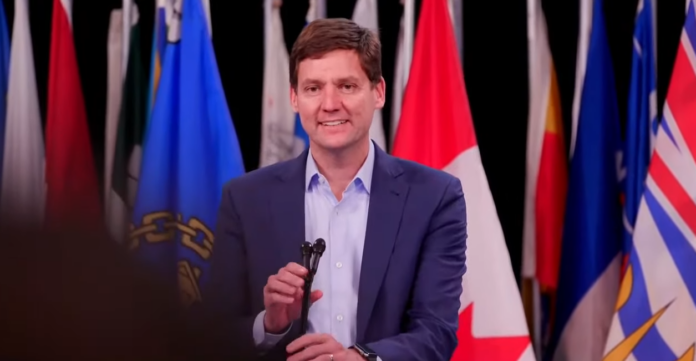The BC government has put forward legislation to further regulate public drug use.
If passed, regulations surrounding public drug use would be in line with regulations in place for alcohol, tobacco and cannabis consumption.
The proposed legislation was announced today by Premier David Eby and minister of public safety Mike Farnworth.
Both say the amendments are critical to ensure people feel safe in their communities, while still working towards the overall goal of decriminalization of reducing stigma and providing necessary support.
“British Columbians overwhelmingly agree addiction is a health matter. At the same time, they’re also concerned about open drug use in public spaces, especially near where kids play,” said Eby.
“That’s why we’re taking this critical step similar to how we regulate smoking or alcohol use in public, to help people feel safer in their communities, and ensure people who use drugs can be connected to safer and more appropriate spaces with the services they need.”
The announcement came just a few weeks after the province announced Health Canada approved an amendment to the original decriminalization legislation.
The approved revisions expanded the list of exempt areas where decrim doesn’t apply to include play structures, spray parks, skate parks and other child-frequented recreation locations, with enforcement allowable under the Controlled Drug and Substances Act.
If the legislation is passed, drug use will be prohibited within a six-meter radius of both residential and commercial building entrances, six metres of bus stops and in parks, beaches and sports fields. Additionally, it would prohibit drug use within a 15-metre radius of locations exempt from decriminalization.
Eby said the proposed regulations closely align with rules in place for tobacco, alcohol and cannabis use and provide clarity to local governments surrounding the consultation process with their health officer and local health authority before adopting additional bylaws to regulate public drug use.
As far as enforcement, the provincial regulations require local police authorities to refrain from punitive measures (unless violations occur in an exempted area) and rather have them educate the individual on a safe or more appropriate area to consume.
However, if a person refuses to comply, police have the right to proceed with appropriate enforcement measures.
Concerns were brought up by reporters surrounding Eby’s statement that violators will be directed to accessible resources and safe places to consume, considering many municipalities, especially in rural and remote areas, lack the appropriate resources and locations to direct users to.
Eby responded by reiterating his statement at the UBCM convention that the province is experiencing a shortage of health care workers, which has prevented some projects from getting underway, but they are exploring solutions.
However, he also identified an additional challenge when he said some municipalities have resisted operating overdose prevention sites in their community.
“We are willing to work with local leadership to make sure that there are safe places with services attached that people can be directed to. We have had a challenge frankly in some communities that are not interested in having overdose prevention sites in their town or city,” said Eby.
“I hope that with this legislation that they recognize how these pieces are going to work together to be able to support people, get them into the right place and connect them into the system to get the care they need.”
Decriminilzation was never meant to enable the use of hard drugs in public, according to Eby, who said the changes will make that clear and provide a solution to communities who have expressed concerns surrounding the issue.
“The original policy put forward was that if you are in possession of a list of drugs, you’re struggling with addiction, we’re not going to arrest you, take you to the criminal court, put you in jail. We need to continue to de-emphasize responding to addiction with criminal law.
“The only way that’s going to continue is if British Columbians understand they don’t have to give up their right to access parks, bus stops or businesses in order for us to treat people with compassion and understanding about their addiction.”




